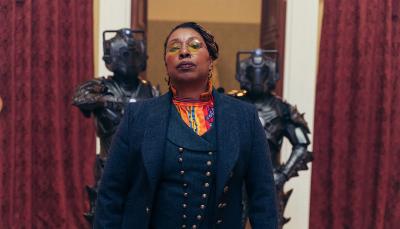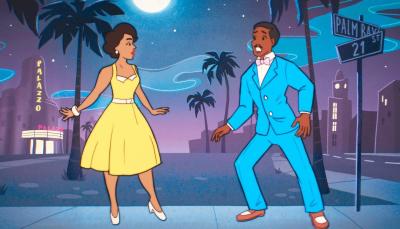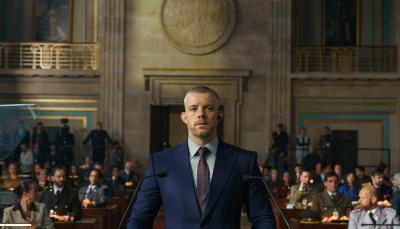'Doctor Who' New Year's Special Recap: "Eve Of The Daleks"
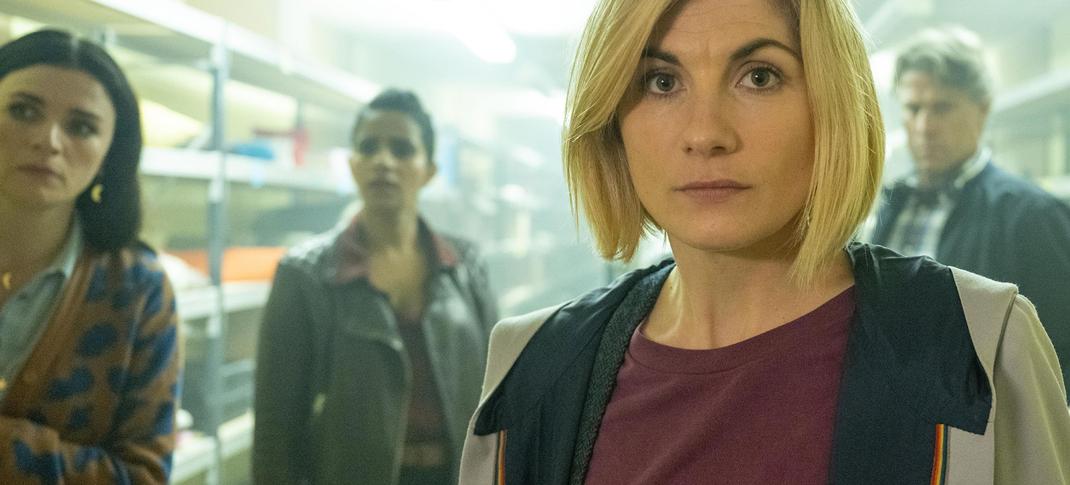
Not every episode of Doctor Who starts with killing the Doctor and all the guest stars in the first ten minutes, but after Doctor Who: Flux, one supposed clearing the decks would be a proper beginning. At least a clearing of the deck is supposedly happening when viewers rejoin the Doctor, Yaz, and Dan. The TARDIS is undergoing a complete cleanout to remove all traces of the terribleness in Season 13.
Despite the Doctor's claims she and her companions will spend the time while the TARDIS does an entire cleanout on the beaches of San Munrohvar, in reality, they are dropped in a miserable storage facility on New Year's Eve with a Dalek who murders everyone in sight.
Nick: I'm trying to figure out which is most unlikely, time loops with a robot or three people from the Council working on New Year's.
Temporal loops are a standard science fiction trope dating back to post-Great War fiction. The most well-known earliest use was in 1922's The Worm Ouroboros, a story of those whose PSTD is such that they cannot settle into the comforts of post-war life, preferring to relive the end of the war over and over. In big and small screen stories. (Some will also cite 1892's William Dean Howell's "Christmas Every Day," but that is not a loop, but skipping through time to live each Christmas Day in succession, a different style of Time Travel trope.)
Nowadays, one cannot do a time loop story without immediately calling to mind its most famous use in mainstream media, Groundhog Day, the phrase of which has become synonymous with the trope. Netflix's Russian Doll, for instance, was immediately compared to the film, despite actually being very different. The series attempted to ignore that by never referencing Groundhog Day at any point, but it was no use. Perhaps aware of that, the Doctor Who episodes confront this right on, with Dan saying "Groundhog Day" while Yaz says "Time loop," Obviously, same difference.
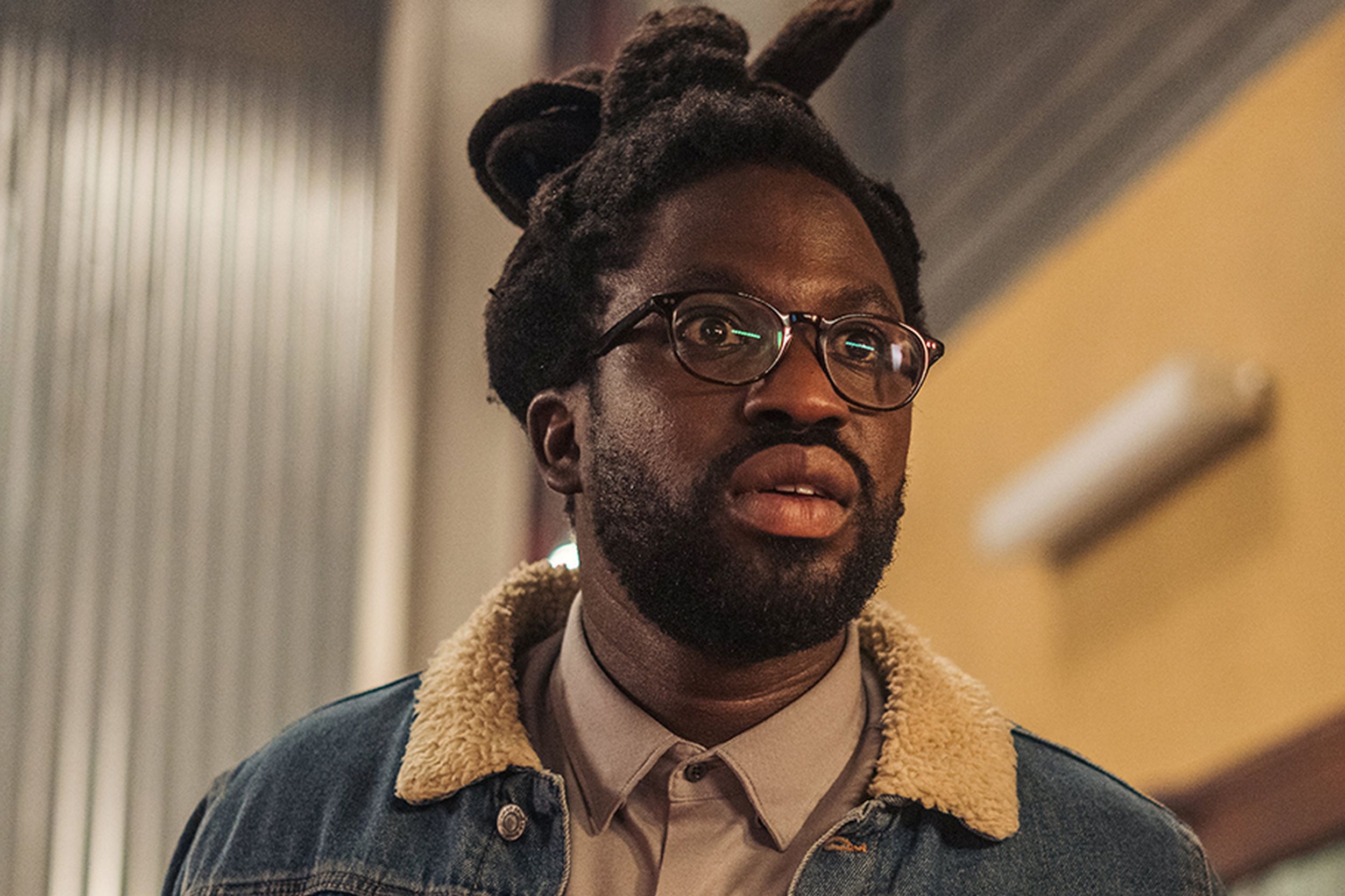
"Eve of the Daleks" is much closer to Groundhog Day in its concept than most. The Doctor, Yaz, and Dan are stuck in a time loop they can only break if they manage to execute everything flawlessly, survive the Daleks in the storage unit, and escape at midnight. Not only do they have to save themselves, but two others, Sarah (Aisling Bea) and Nick (Adjani Salmon), the former of whose mother (Pauline McLynn) calls at 4 minutes to midnight like clockwork in every loop. On the one hand, everyone remembers the previous loops, so there's no learning curve, but for this not to be too easy, each ensuing loop starts one minute later, decreasing the time the Doctor has to save everyone.
As a concept, it's a simple one, but if there's anything the Chris Chibnall era has shown, he is at his best when he keeps it simple. Something like Flux, an ambitious overreach, was about ten steps too far for Chibnall to handle. But a simple time loop with two Daleks, a cute love story between guest stars, and the Doctor doing her Doctor thing is perfect for him. It works for Chibnall's humorous side as well, with an hour that produced some of the best quotes of this era: "Daleks do not store stuff," "Daleks do not have managers," "Daleks do not have friends," and my personal favorite, "Daleks are never sorry."
This episode also worked because those introduced as guest stars were obvious good choices to be Doctor's companions, should push come to shove. One of the flaws of Flux is that the more prominent names in it — like Vinder and Bel — had no need of the Doctor or the TARDIS and were independent players, making their existence superfluous. (On the other hand, Professor Jericho made excellent companion material, which is why he fit in so well.) Both Sarah and Nick felt like proper companion types (Sarah especially, with her angry exterior and soft heart), making them excellent additions to the story.
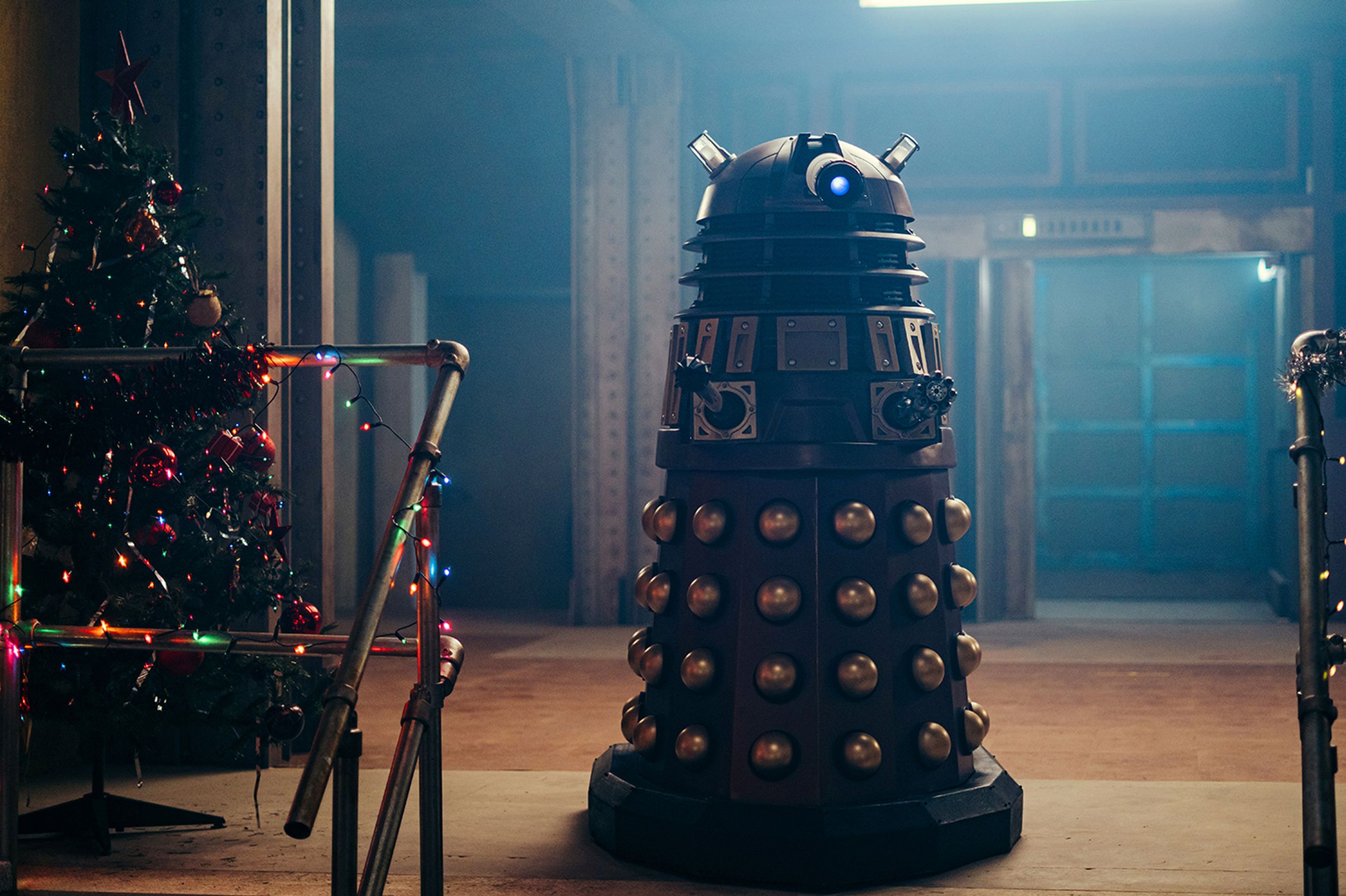
The episode even managed to do some Flux clean-up, not just in the TARDIS or Dan's note that the Doctor saved the universe "last week." One of the (many) unresolved plot threads was that the Flux seemed to have killed all the Daleks, so how were there more for a New Year's episode? These are the survivors who blame the Doctor for the mass casualty event at the end of Flux. The series even takes a moment to discuss Yaz's unrequited crush on the Doctor in one of the best scenes with Dan the show has managed yet, even if it's more telling than showing.
As for the ending, the show also threw in a cute little Easter egg calling back to the Doctor's opening episode. If you asked yourself who was that random person watching the Elf Storage fireworks display, that was actor Jonny Dixon, whose character, Karl Wright, was introduced as a comedic side character in the 13th Doctor's premiere episode "The Woman Who Fell To Earth." (You may remember him as the crane operator who listened to those self-assurance recordings.) Exactly why he appeared here is unclear, but with a few more specials to go, perhaps the ties back to Sheffield are in play.
The next special is due to air in the spring and looks to be a period piece seafaring story that will bring in 19th-century Chinese pirate Ching Shih. Period set stories are Chibnall's strongest storytelling suit, especially ones that teach audiences about little-known historical figures that Western history has either distorted or forgotten. It looks like Doctor Who's final run of Jodie Whittaker Chibnall-penned installments will be playing to the best aspects of this 13th Doctor era.


